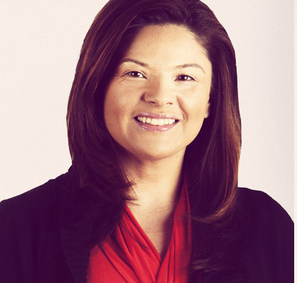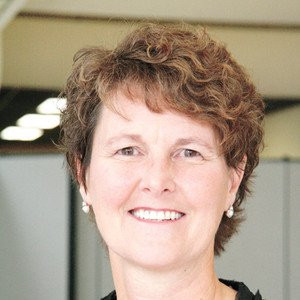Horowitz: Improving Educational Performance -The Surest Path to Prosperity
Tuesday, August 25, 2015
A persuasive statistical analysis recently put forward by two noted experts on the economics of education establishes that student performance at age 15 on an international test of mathematical knowledge and ability is a strong predictor of a nation’s future economic growth. The math skills tested are as strongly correlated with economic growth because they probably are a good proxy for a range of critical skills including the ability to read and comprehend, according to the authors of the analysis, Erik Hanushek of the Hoover Institution, and Ludger Woessmann of the Ifo Institute for Economic Research in Germany.
Further, small improvements in educational performance, say the study’s authors, provide a big pay off in economic growth. For example, just a 5% increase in the average score of American students would generate an additional $40 trillion in cumulative economic output over the next 20 years.
And there is plenty of room for improvement. Despite substantial gains made in our students’ ability to do math over the past 25 years or so as measured by standardized tests, we still have a long way to go. The United States ranked 35th out of 64 countries in math and 27th in science. in the most recent Program for International Student Assessment(PISA) tests.
GET THE LATEST BREAKING NEWS HERE -- SIGN UP FOR GOLOCAL FREE DAILY EBLASTNoting the strong link between educational performance and economic growth established in the statistical analysis., Robert Litan of The Brookings Institution, writes, “there is one surefire way, at least in principle, to boost growth and improve equity: by improving the quality of K-12 education.”
Recognizing the importance of a more prepared, better skilled workforce as a key to economic growth in a tough competitive global economy where capital is mobile, our past two Presidents, Barack Obama and George W. Bush, despite their policy differences across a range of issues, both strongly backed a large role for the federal government in education—a role in which federal funding is used as leverage to provide incentives for efforts aimed at improving quality. In a welcome departure from rote formula funding, which treats success and failure the same, under President Obama and his Secretary of Education Arne Duncan, the funding of education programs based on evidence that they improve student performance has become widespread
It is critical that the next President continue this approach—an approach that is generating some of the changes we need in a public education system that has failed in large measure to keep up for our major competitors and as a result is failing too many or our children.
I am not arguing that we have achieved perfection in federal educational policy; there is still much room for improvement and new ideas. But I am arguing that the shared Bush/Obama emphasis on educational quality is the right and needed priority.
This is the discussion we should be having in the Presidential campaign. What are each candidate's ideas for improving school performance? Instead so far unfortunately, the discussion has mainly been limited to hot button ideological issues such as rejection of Common Core.
One bright spot was the recent Education Forum for the Republican Presidential candidates held in New Hampshire and hosted by former television correspondent and current education activist, Campbell Brown. Together with the Des Moines Register,. Brown will be holding a similar forum for the Democratic candidates in Iowa in October
A compelling answer to improving educational performance should be a threshold requirement that we voters demand of all candidates who seek to be our President. There are few—if any—topics-- that are more central to our economic future.
Rob Horowitz is a strategic and communications consultant who provides general consulting, public relations, direct mail services and polling for national and state issue organizations, various non-profits and elected officials and candidates. He is an Adjunct Professor of Political Science at the University of Rhode Island
Related Slideshow: RI Experts on the Biggest Issues Facing Public Education
On Friday November 22, the Hassenfeld Institute for Public Leadership at Bryant University, the Latino Policy Institute of Roger Williams University, the Rhode Island Association of School Committees, the Providence Student Union, and RI-CAN: Rhode Island Campaign for Achievement Now will host Rhode Island leaders in the public and nonprofit sectors for a symposium on "the civil rights issue of the 21st century, adequacy and equity and the State of Education in Rhode Island."
Weighing in on the the "three biggest factors" facing education in the state today are symposium participatnts Gary Sasse, Founding Director of the Hassenfeld Institute for Leadership; Christine Lopes Metcalfe, Executive Director of RI-CAN; Anna Cano-Morales, Chairwoman of the Board of Trustees, Central Falls Public Schools and Director, Latino Policy Institute at Roger Williams University; Tim Duffy, Executive Director, RI Association of School Committees; and Deborah Cylke, Superintendent of Pawtucket Public Schools.
Related Articles
- Horowitz: Ted Cruz and the Politics of No
- Horowitz: Obamacare; Going Strong on 5 Year Anniversary
- Horowitz: Giuliani Keeps Digging—And Its Not Helping
- Horowitz: The Boehner/Nentanyahu Debacle
- Horowitz: Selma 50 Years On
- Horowitz: Raimondo’s Budget: Well-Constructed and Well-Packaged
- Horowitz: Obesity is a Big-Time Societal Expense
- Horowitz: Don’t Count Martin O’Malley Out
- Horowitz: Trump Hits Self-Destruct Button
- Horowitz: Trump - It’s Time to End his Free Ride
- Horowitz: Let’s Celebrate Americans with Disabilities Act: 25th Anniversary
- Horowitz: President Biden
- Horowitz: Debate - Biggest Winner FOX; Biggest Loser Trump
- Horowitz: Brazil and China Step Up on Climate
- Horowitz: Marriage Equality Realized
- Horowitz: Growing Availability of Government Data Empowers Us
- Horowitz: Lindsey Graham’s Candidacy Sharpens Foreign Policy Debate
- Horowitz: Clinton Kicks Off Campaign Impressively
- Horowitz: Pope Francis Sounds Climate Change Alarm
- Horowitz: Declaring a New Era for U.S.-Cuba Relations
- Horowitz: President Chafee
- Horowitz: Pension Deal is Good for Rhode Island
- Horowitz: Earth Day 2015 - Much to Celebrate; But Bi-Partisanship Needed
- Horowitz: Clinton Foundation Cash & Email Problems Creates Opening for Dem Challengers
- Horowitz: Give Obama Fast Track Authority on Asian Trade Pact













